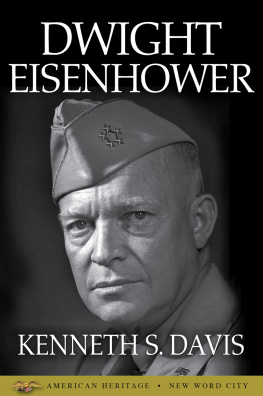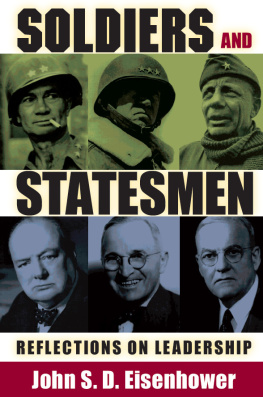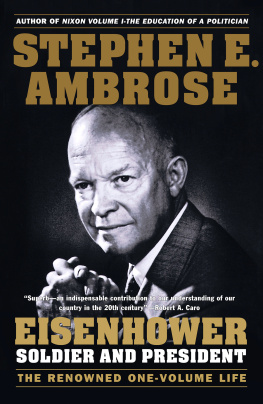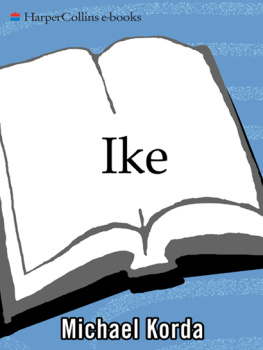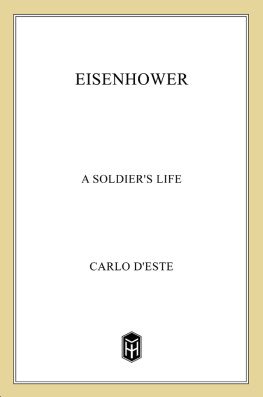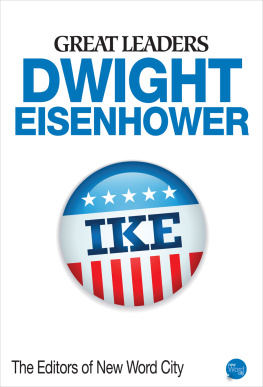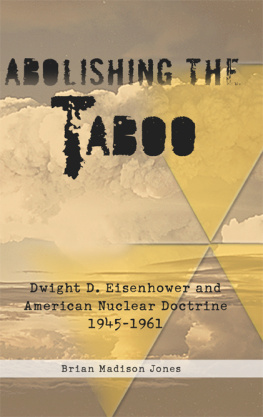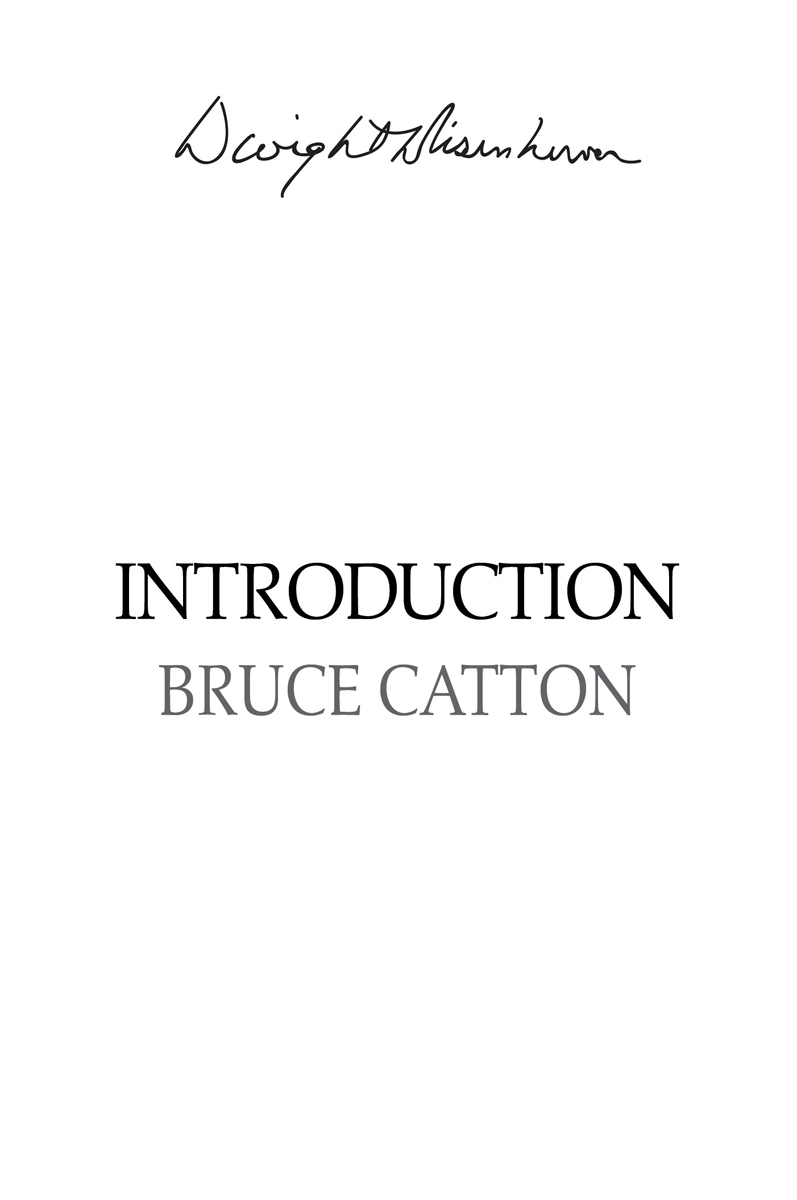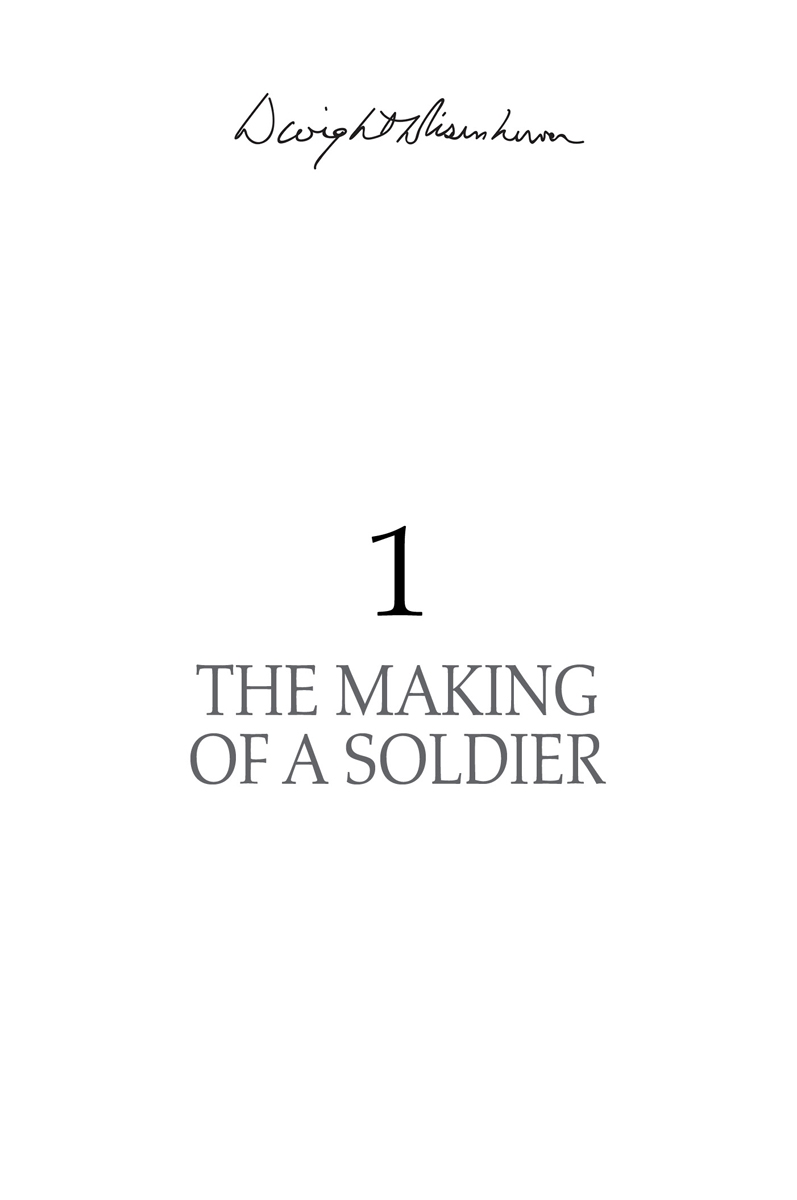More than any other position in America, the presidency is a job for a politician. Most of the time the electorate recognizes that fact and chooses a person who has had experience and shown capacity in the political field. To be sure, a good military reputation is no drawback, and a politician who has been a good soldier is apt to find that his candidacy is made more appealing thereby - as witness the cases (to name just two) of Andrew Jackson and Theodore Roosevelt. But military reputation usually is no more than the icing on the cake. It may please the voters, but the voters pick their man primarily because he is a good politician. They elect presidents, not generals.
Twice, however, it has happened the other way. Twice the electorate went entirely outside of politics and chose as president a man who was a professional soldier pure and simple, a man who never before ran for office or took any part in politics and who made his entire reputation as a military man. Two West Pointers, and only two, have lived in the White House: General Ulysses S. Grant, elected in 1868, and General Dwight D. Eisenhower, elected in 1952. Here are two great departures from the strongest tradition in American politics.
The departures reflect the times in which they were made. In each case, the nation was trying to recover from a war which it had hoped to avoid and which it had trouble understanding. Something incomprehensible had been won, at enormous cost, but nameless perils obviously lay ahead, and it seemed possible that what had been won might easily be lost. Both the immediate past and the ominous future appeared to be at stake, and it was necessary to do something drastic about it.
The great tradition is fractured, in short, when the people are desperate. They fracture it because they want to transcend politics; in other words, when they want to transcend themselves, politics being nothing less than a faithful transcription of the American spirit. To say that at such a moment the people are blindly trying to dodge their troubles by exalting a father image is mostly to utter wind-blown nonsense, but they unquestionably are both tired and worried, and they look for someone who, without making too many words about it, can preserve what has been won and restore the wartime vision without also restoring the wartime tension. This may be a hopeless quest, but it is not just an attempt to evade responsibility. It is an attempt to live up to something, if only by finding the man who can provide a breathing spell in which the nation can appraise what it has done and see what ought to be done next. And at such a moment, the supremely successful soldier naturally looks like the man who is needed.
Note that it is the nonpolitical soldier who is chosen. The electorate passes over the leaders like General George B. McClellan and General Douglas MacArthur; each of whom, in addition to a notable military record, had the gift of eloquence and an undeniable knack for political maneuvering. Instead, the nation turns, as if by instinct, to men who were soldiers and nothing else. The very lack of political experience looks like an asset, and the inability to be eloquent becomes precisely the quality the country wants most. The chosen soldiers are chosen because, in some way, they seem to represent the national average made larger than life-size. By their very silence and devotion to duty, they somehow express a lets-get-on-with-it spirit that is invaluable.
This may be fine for the electorate, but it is rather rough on the man who is chosen. Into the most completely political job on earth is thrust a man whose chief qualification is that he has no political background whatever. Trained for one job, the new president finds himself in a place for which his training is of no use. He is apt to be judged by standards that have nothing to do with the reasons for his election - what was his legislative program, how much of it did he get through Congress, whom did he appoint to what jobs, how did his appointees behave, and in general, what sort of leadership did he provide? These matters may be important, and yet in a way they are irrelevant. What the nation really wants, when it elects a Grant or an Eisenhower, is simply that the man elected continue to be what he was before he was elected - a national hero who somehow embodies in peace the national ideals he stood for in war.
This, of course, is an impossible assignment, because when a great war ends, we demobilize our wartime ideals with a haste almost as frantic as the demobilization of our armed forces. The chosen hero is not given much to work with. There is bound to be a letdown, and when it comes, we have a smug way of assuming that the president has been at fault. We blame him for our own shortcomings, and after a while, we return to the familiar world of unadorned politics and let the hero make his way to Valhalla as best he can.
While he is going there, his image is apt to become a little blurred, and it takes us a long time to refocus it. Eventually, however, we begin to see things more clearly, maybe realizing that our instinct to elect him was a good deal sounder than the criticism brought to bear on him. For we actually asked the chosen hero to preside over the affairs of a restless and impatient people, longing to get back to a less complicated and frightening era, who finally had to accept their strange new world. In all of this, the hero could do little more than provide a feeling of security and confidence. The profound adjustment was one that we, the people, had to make for ourselves. The man at the top could give us time to make it, but the rest was up to us.
So now, when we take a final look at Dwight Eisenhower; we stand in judgment of ourselves as much as of him, and we find the record is a good deal better than sometimes supposed. For the nation did, after all, get through the terribly difficult postwar transition without disastrous mistakes. We did not repeat the tragic error of the 1920s, trying to take refuge in an unattainable isolation and letting the rest of the world go off into chaos. We evolved and put into operation a working philosophy of the unity of free peoples everywhere. We assumed leadership of the most portentous movement in recent centuries - the great drive toward a world order which has to be attained if human liberty and civilization itself are to survive. We were, indeed, guilty of a good deal of fumbling and backsliding along the way, but in the main, the record is extremely good. Perhaps the best way to sum it up is to say that the ideals we fought for in the Second World War are still alive and we are firmly committed to them.
It would, of course, be overstating the case to say all of this was due to Eisenhower. But it would be equally wrong to assume all of it would have happened without him. He was a part of it, and a very large part. He gave us the strength of a great reputation, a great character, and an abiding sense of Americas mission; he gave us, when all is said and done, the chance to live up to the best there is in us. Not very many presidents have ever given us more.
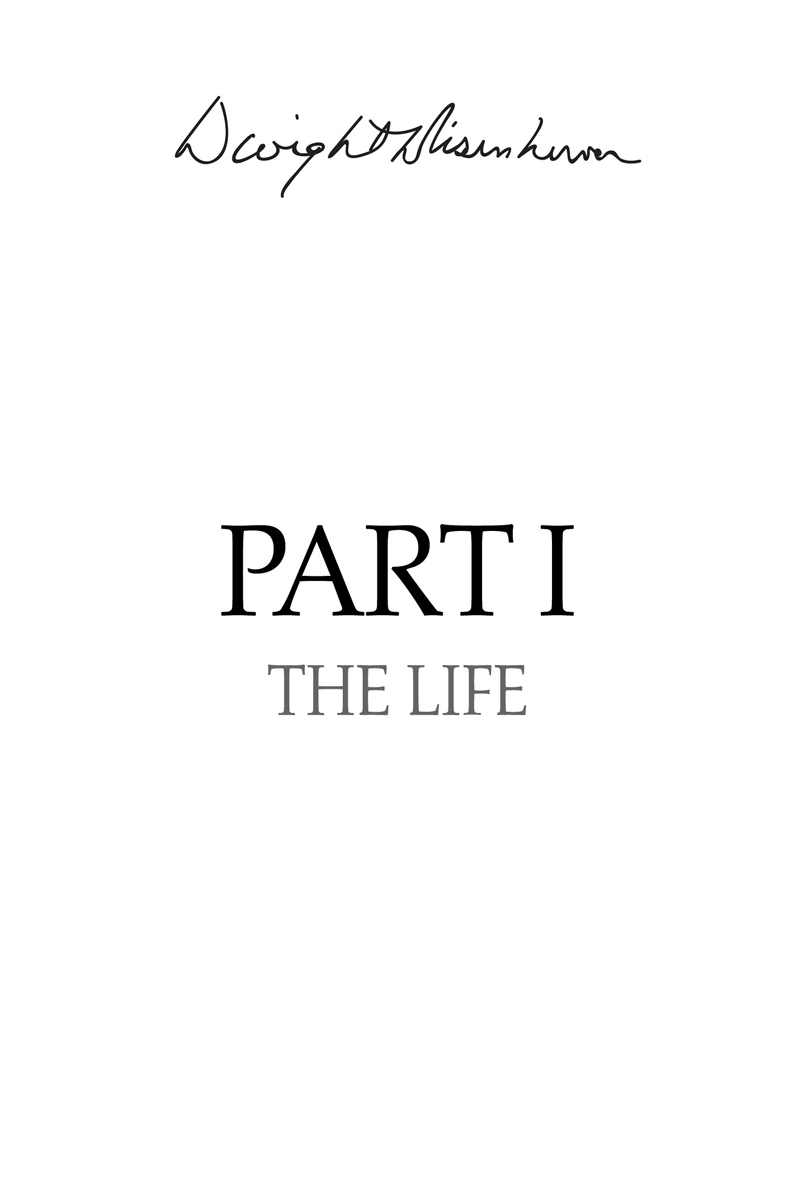
On a golden June day in 1911 in the little Kansas town of Abilene, just a few miles from the exact geographical center of the United States, a young man was leaving home for the first time to make his way in the great world. Nothing especially distinguished him from thousands of other young men who were doing the same thing that summer across the length and breadth of America. He was somewhat older than most of these men, only four months short of voting age, but in other respects he was so well within the average for his time and place - in appearance, in opinions, in the quality of his attainments and the nature of his ambitions - that he could pass almost as the model of small-town, middle-class, Middle-Western American.

